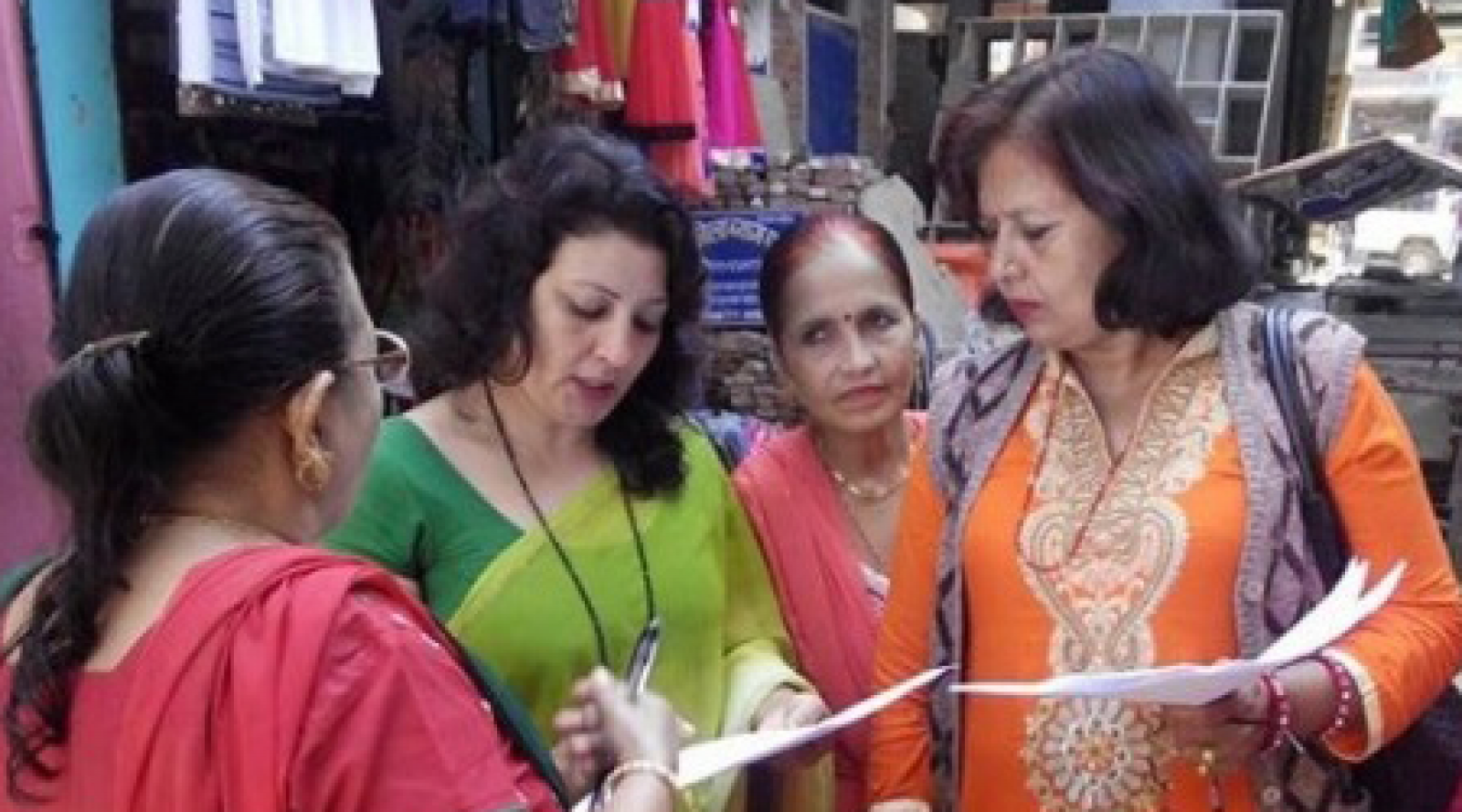
SHARE
Women and youth constitute an important but often neglected group in Nepalese politics. Irrespective of their ideologies, political parties are unanimous in their agreement on the importance these groups can play within their parties. When it comes to allocating positions of authority, however, both women and youth are often relegated to the background. This has resulted in an increasing number of women and youth leaders who are disillusioned with the political process.
Through Strengthening Political Parties, Electoral and Legislative Processes (SPPELP), a project funded by the United States Agency for International Development (USAID), NDI works with women and youth leaders from six major Nepali political parties to advocate for their rights through single and multi-party trainings across the country.
Prior to the completion of the most recent constitution, women and youth leaders worked with national and international experts to find ways to ensure that their rights were safeguarded.
 Nepali youth conduct surveys to gauge public perception.
Nepali youth conduct surveys to gauge public perception.Based on the outcomes of these surveys, the leaders developed position papers outlining how the new constitution can incorporate their perspectives. Following intense rounds of advocacy efforts with senior party leaders and the chair of the Constitution Drafting Committee, their hard work was rewarded when the final constitution was promulgated by President Yadav on September 20.
The new constitution incorporates the basic rights of Nepali youth through multiple provisions, particularly in Provision 42 under Fundamental Rights and Duties. Provision 42(1) protects the rights of youths to “employment in state structures on the basis of the principle of inclusion.” Provision 42(2) provides citizens who are, “economically very poor,” the right to, “special opportunity and facilities in the areas of education, health, housing, employment, food and social security, for their protection, progress, empowerment and development.”
A major achievement is the allocation of 33 percent of the seats in the House of Representatives for Nepali women. Nepali parliamentarians are now working to raise awareness at the local level on issues relating to women’s rights in the constitution. Bimala KC, a former parliamentarian for the United Communist Party of Nepal Maoist (UCPN-M) said, “We will work tirelessly to ensure that each and every woman is aware of the provisions related to women's rights in the constitution so that we can work together to push for amendments in the future.”
While the constitution has taken important steps toward protecting the rights of women and youth, there is still room for improvement. For example, advocates seek an amendment that would allow women to pass citizenship to their children. Nepal’s new constitution currently restricts single women from conferring citizenship to their children, and married women from passing citizenship to their children if born to non-citizen fathers. A provision in the constitution that allows for amendments will enable advocates to push for reforms.
NDI has worked in Nepal since 1994, conducting programs for political party, parliamentary and ministry development, voter and civic education, domestic election observation, and youth and women’s political empowerment. One of the Institute's largest programs in Asia, NDI’s work in Nepal is supported by 6-year USAID-funded grant with the overall goal of increasing public participation in the political process and enhancing political and communication skills across Nepali society.
Published on January 7, 2016


